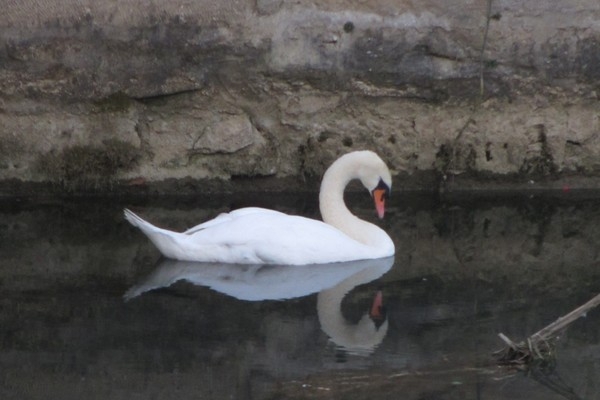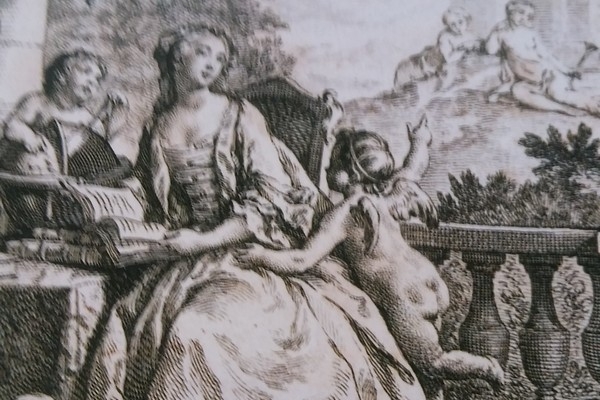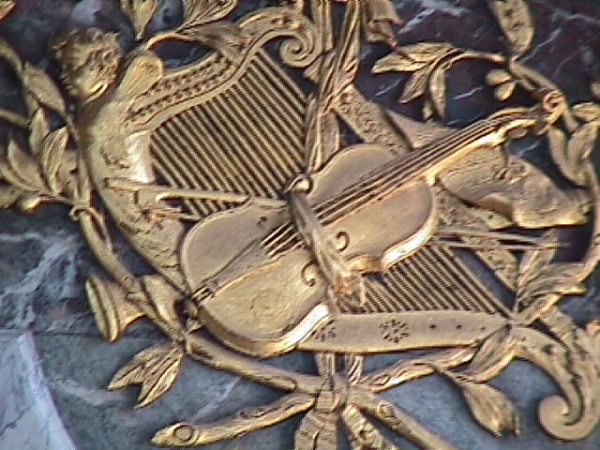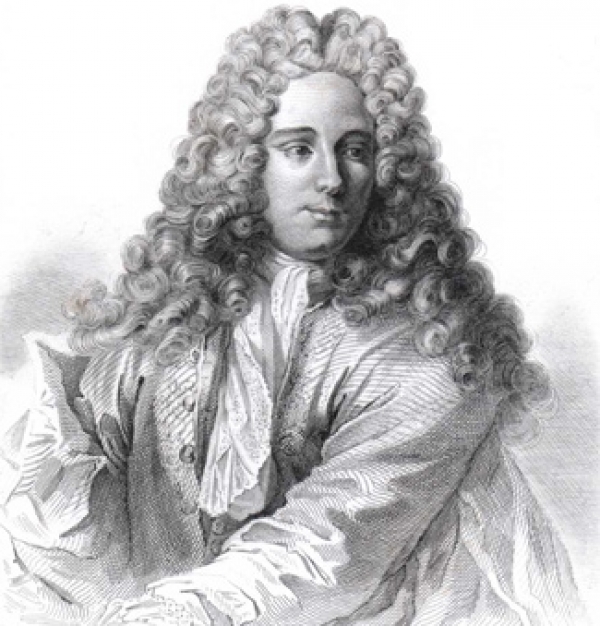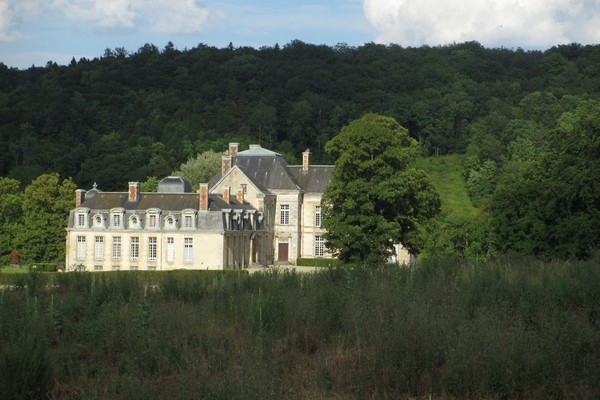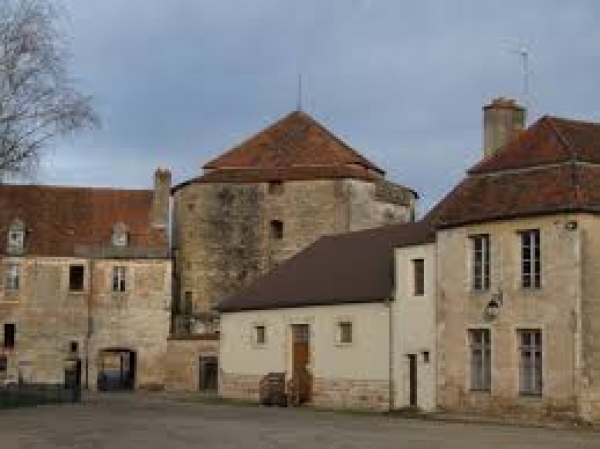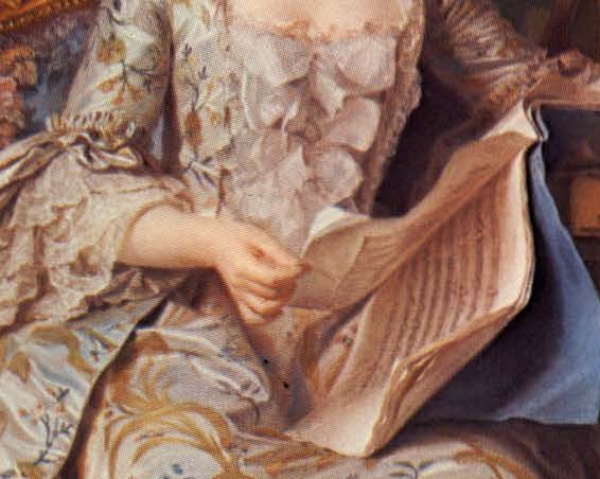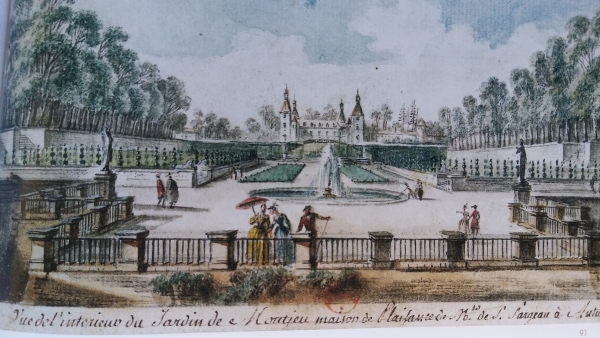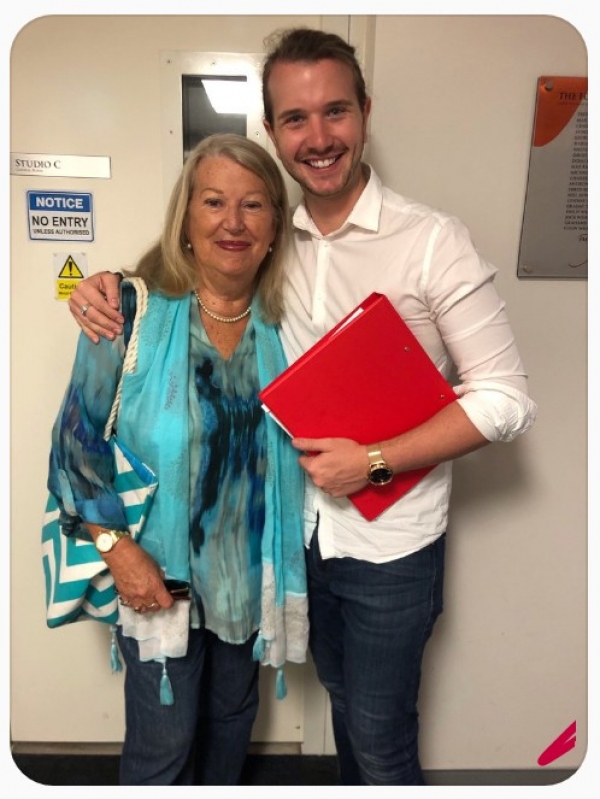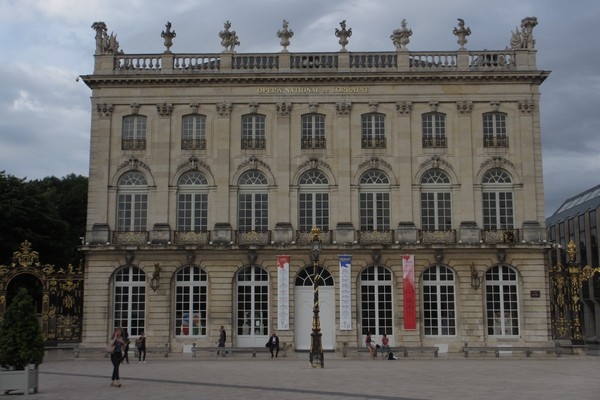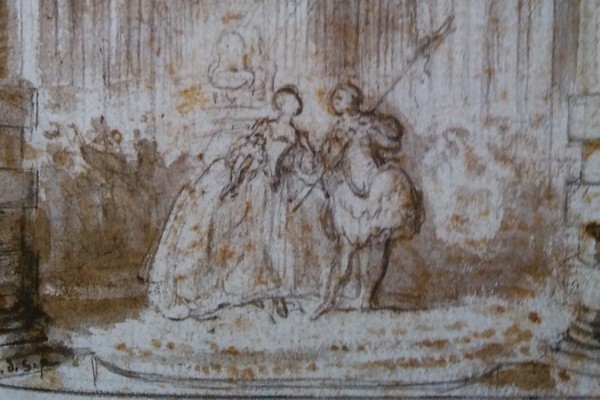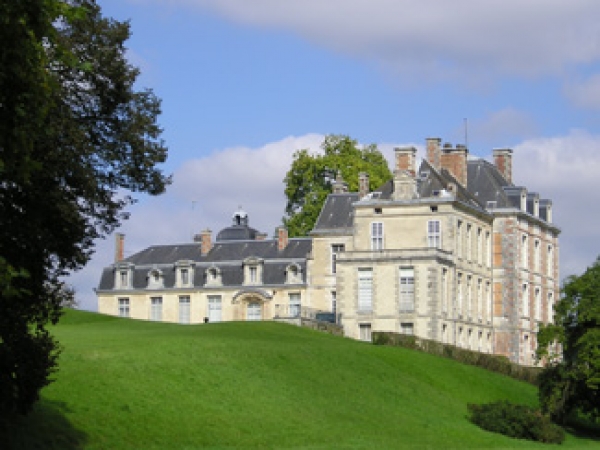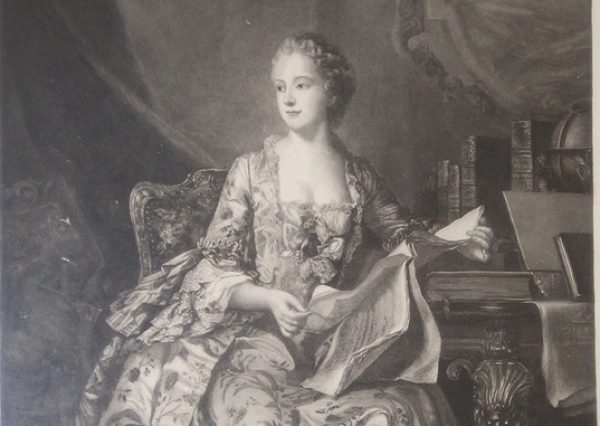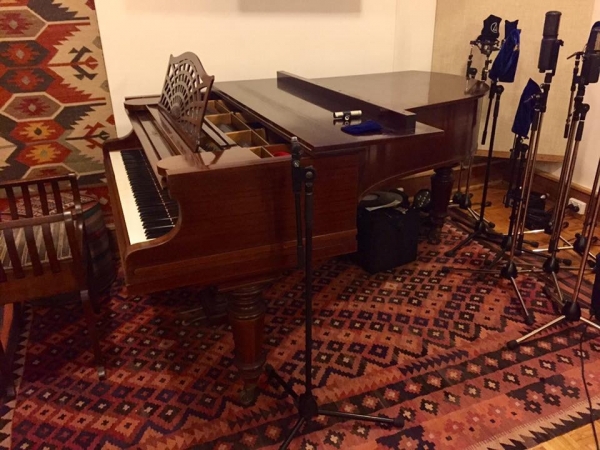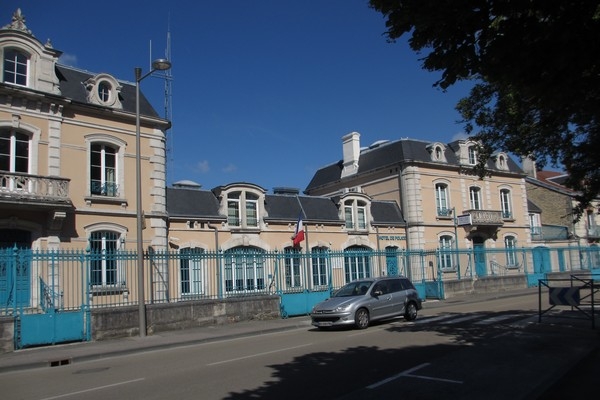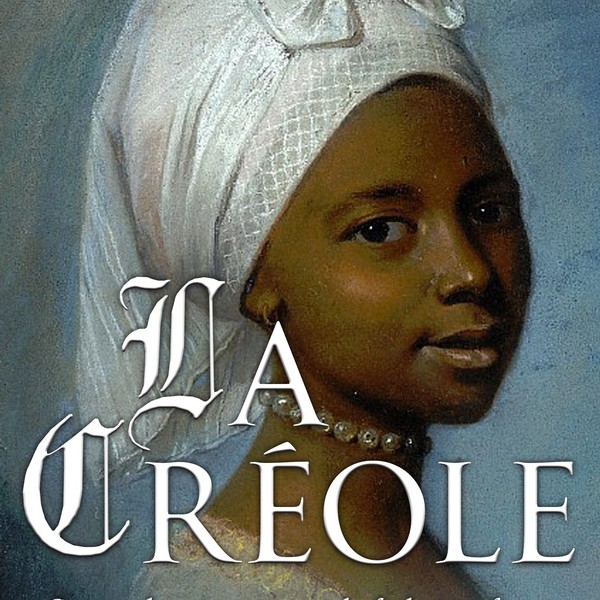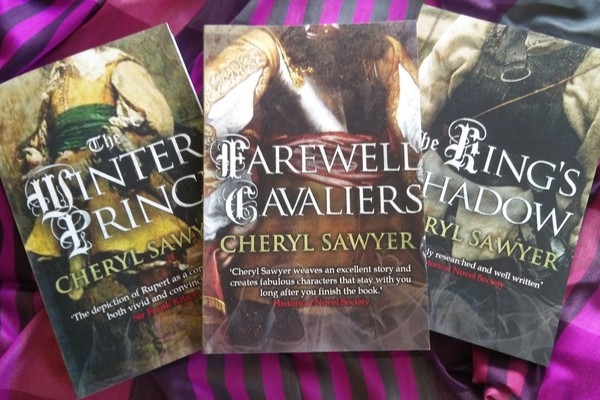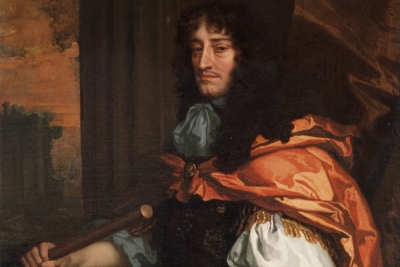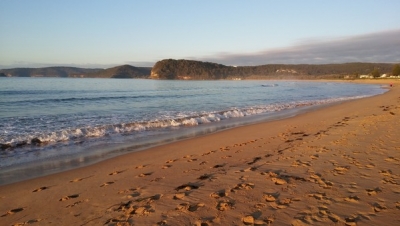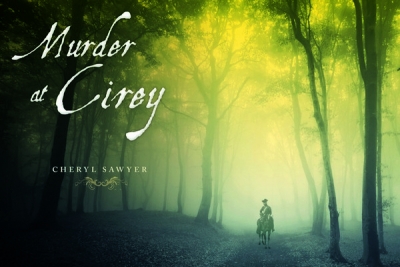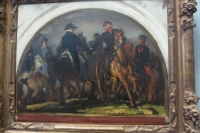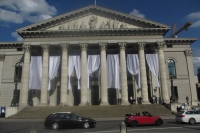Welcome!
Cheryl Sawyer welcomes readers to her historical novels, blogs about discoveries in writing and research, and shares her experiences in the world of creative fiction. Cheryl has had a long career in book publishing, which she left in 2014, to write full-time. Her first historical novel was published by Random House in 1998 and her American debut in 2005 was acclaimed by Booklist as 'a grand and glorious delight'. More novels have been released in several languages by Penguin US, Bertelsmann, Mir Knigi, Via Magna, Domino, Reader's Digest and Endeavour Press UK. Cheryl Sawyer's work has been longlisted for awards by the Historical Novel Society and the American Library in Paris. She has recently completed an English Civil War trilogy with The Winter Prince, Farewell, Cavaliers and The King's Shadow. Peter James calls her work ‘historical fiction writing at its very best’.
From Voltaire to the Comte d'Argental, December 1734
I’ve been leading a somewhat wandering life, my adorable friend, for more than a month; that’s what’s prevented me from writing to you. I think I’m finally about to enjoy the peace that your negotiations and good efforts have brought me. At last Madame de Richelieu is about to be given an audience. She won’t leave your Chancellor alone until peace has been granted, and I hope that at last this outrageous persecution over an innocent book will cease. As for me, I don’t mind telling you I’ll have to be pretty philosophical to forget the disgraceful manner in which I’ve been treated in my own country. Only friends such as yourself, and those others who’ve served me so well, could persuade me to stay in France.
If I don’t return soon, would you like me to send you a rather distinctive tragedy [Alzire, ou les Américains] that I’ve completed in my solitude? It’s a very Christian play that may well do me some favours with the devout; I’ll be delighted with that, as long as it doesn’t put off the audience in the stalls. It’s an entirely new world [the Peru of the conquistadors] with entirely new morals. I’m positive it would go down a treat in Panama or Fernambouc [in Brazil]. God grant that it’s not hissed at in Paris …
Is it true that they’re talking about leaving me in peace? I beg you to let me know what people are saying. There’ll hardly be an individual who doesn’t take an interest—like an ass that carries a double load in wartime.
Adieu, I love you as you deserved to be loved
The solitary swan is floating on the River Marne at Joinville, not far from Cirey. Voltaire was in fact hiding at Cirey when he wrote this letter.
From Émilie to Maupertuis, 23 October 1734
At last, monsieur, you’ve recalled my existence. I now have your letter from Basel, just when I’d given up hope of ever receiving another. I was ready to start hating geometry, which would have been no great loss to it but very unjust to you.
I’m here [at Cirey] in profound solitude [actually Voltaire was hiding there too], which suits me quite well; I divide my time between stone masons and John Locke—because, like any other woman, I want to get to the bottom of everything.
I wouldn’t have written to you about Voltaire this time, but you ask, so I must give you an answer. His affairs are in better shape at the moment than his health, which is the one thing that could prevent his going to Basel. However, the season is unfavourable for a hypochondriac. I’ve let him know that he ought to take my advice and travel to Paris with you when you go back. Please note that I want us all to be together there for midnight mass on Christmas Eve. By that time at least, his affairs should all be resolved.
Rameau was gallant enough to invite me to a rehearsal of Samson [libretto by Voltaire]. I realise I owe the invitation to you and truly my gratitude is in proportion to the pleasure the opera gave me, which is saying a lot. I particularly admired the overture, a chaconne, several violin passages, and the third and fifth act. If Voltaire is allowed to rejoin us this winter, he’ll give us an opera and a tragedy. He tells me he’s revised the opera and made Delilah a fine, upstanding character, despite the way she’s portrayed in Holy Scripture.
Voltaire to Madame de Champbonin, October 1734
Madame du Châtelet arrived [on a visit to Cirey] from Paris yesterday evening. She came at the very moment when I received a letter from her saying she would not arrive so soon. She is surrounded by two hundred bundles that turned up on the same day as herself. We have beds with no curtains, bedrooms with no windows, Chinese cabinets but no armchairs, charming phaetons and not a horse fit to pull them. In the midst of this disorder, Madame du Châtelet laughs and is charming. She came in a sort of tipcart for two; she’d had no sleep but was quite well. She asks me to send you a thousand compliments on her behalf. We’re about to patch old tapestries back together. We’re looking for curtains, we’re having doors made—all so we can have you to visit. I swear, joking apart, that you’ll be well looked after here. Farewell, madame, I am very tenderly and respectfully attached to you for life.
From Émilie to Maupertuis, 22 May 1734
I’ve sent your letter on to our unhappy Voltaire; if it reaches him, I know it will give him the greatest pleasure, because I know his esteem and friendship for you. I’ve no idea what’s happening to him; I’ve had no news since he left us. I hope he’s decided to make for Basel or Geneva … I’m told his book has been denounced by Parlement. This is a plot to destroy him, but his friends are the ones I feel painfully sorry for, because it will divide him from them for ever. As for him, he could make his home in any country, and I confess that however much I hate the idea, I’d a hundred times sooner he were in Switzerland than in Auxonne [in prison].
I’ve sent Voltaire’s address to La Condamine and asked him to give it to you; I beg you to write and tell Voltaire anything you may find out. He assures me it’s a safe address, and wherever he is in reality, letters are sure to reach him. Please don’t reveal it to anyone.
I’m convinced he’d profit from any words of wisdom you may send, if he should get the chance to act on them—but it looks as though his fate will be sad for his friends and shameful to his enemies. When it’s too late, they’ll be sorry.
The portrait is of Pierre-Louis Moreau de Maupertuis, former mathematics tutor of both Voltaire and Émilie.
From Voltaire to René Hérault, May 1734
I’m surprised and pained, monsieur, that the yapping of my worthless enemies has imposed on a man as enlightened as yourself. Ought you to listen to the pious and idiotic clamouring of the superstitious imbeciles infected by Jansenism, who claim that by mocking the convulsions of the Quakers one is attacking God and the state? It is not for police prosecutors that I write: I write for men of intellect and education. Pay no heed, monsieur, to the idiotic crowd who sunt sicut equus et mulus quibus non est intellectus [are like horses and donkeys, incapable of understanding]: they grumble for a week without knowing why and then fall into total silence over things beyond their comprehension. Be so kind as consult such men as the following about my book [Philosophical Letters]: M. de Maupertuis, M. de Mairan, M. Boindin, M. de Fontenelle, M. du Fay, M. de Condamine. These are men who think, and whose sentiments gradually become those of the public, because in the long run the vulgar are always and in everything guided by a small number of superior minds, in both literature and politics.
My book has been translated into English and German, and has more admirers in Europe than worthless critics in France … I may have to seek in foreign countries the rest and consideration that I’m owed, at the very least, in my homeland. If so, I shall live where necessary in honour and without complaint. I shall miss only a few friends, and I shall never forget your goodness. I beg you to distinguish me, monsieur, from the crowd who are importuning you as a magistrate, and remember only, as I do, what a superior mind like yours owes to humanity. My gratitude will equal my attachment to you, and the tender and respectful zeal with which, as you know, I shall always be your very humble and obedient servant. Voltaire.
The image shows Cirey in the Haute Marne, where Voltaire was in hiding from the police at the time.
From Émilie to Aldonce de Sade, May 1734
Every week I'm sharing some of the correspondence of Gabrielle-Émilie de Breteuil, Marquise du Châtelet, and her lover Voltaire. This letter was written during a crisis, just after an attempt by the king's gendarmes to arrest Voltaire in Burgundy and throw him into prison in the town of Auxonne (pictured). The legacy of these events is still felt by the lovers in the new opera, Émilie & Voltaire, being developed this year by Nicholas Gentile.
We must conclude that my friend Voltaire—you know my feelings for him—is in prison at Auxonne, near Dijon. He left us several days ago to take the waters at Plombières (his health has long required it) but gendarmes sent here by the Governor of Burgundy have brought a warrant for his arrest and he is to be imprisoned at Auxonne until further notice. … I can’t tell you how devastating this is; I can hardly bear to think of my best friend, whose health is so terrible, locked in a prison where he will surely die of suffering, if not of some illness. I have no news of him and can’t defy the might of such a minister [Chauvelin, Minister of Police] by sending him mine … But of what use to Voltaire are our tears and regrets? I have no hope. Monsieur de Chauvelin is inflexible and I am inconsolable: I’ll never get over the loss of such a friend. Flirtation or resentment—anything at all—will do to console us after losing a lover; but time, which heals all wounds, would only poison mine …
I’m going at once to my château in the country. I can’t stand society any longer. Men are so false, so unjust, so prejudiced, so tyrannical! I must either live alone, or with people who think as you do. One spends one’s existence with envious vipers—what’s the use being alive and young? I’d prefer to be fifty years old and live in the country with my friend, Madame de Richelieu and you. Alas, we spend our lives planning to be happy and we never manage it. Farewell, monsieur: I can feel my suffering diminish even as I write to you, but I don’t want to strain your friendship.
From Voltaire to La Condamine of the Academy of Sciences in Paris, January 1734
You will soon be seeing Madame du Châtelet. The friendship with which she honours me has not failed me in this pass. Her mind is worthy of you and her heart is worthy of her mind. The good offices she extends to her friends are as great as the keenness with which she learns languages and geometry, and when she has rendered us every imaginable service, she still thinks she has performed none; such is her intellect and her learning that she believes she knows nothing and has no idea how intelligent she is. Take her to your heart and let us be her admirers and friends as long as we live.
From Émilie to Maupertuis, April 1734
I’d like you to give me some lessons here [Château de Montjeu, Burgundy, pictured], but since you’re remaining in Paris I’ll hurry my return and get there at the end of June at the latest. I flatter myself that I’ll then prove somewhat less unworthy of your tutoring.
I’m not aiming to do well in geometry for my own sake; I’m more motivated by my pride in your reputation. It doesn’t seem right for anyone who has you as a teacher to make such mediocre progress, and I can’t tell you how much it shames me.
I’m here in the most beautiful place in the world, with the most wonderful people: all that’s missing is the pleasure of seeing and listening to you. When I told Voltaire I was writing to you, he asked me to tell you a thousand things on his account—he’s worried, quite rightly, about the fate of his Philosophical Letters [a new, controversial book]. He’s immensely flattered that his enemies believe you contributed to his essays on Newton, and if it weren’t for the fear that he’ll be arrested for writing them, I think your approbation would make up for everything else.
Vlog #1 for Émilie & Voltaire
Yesterday I was at at Fine Music recording studios in St Leonard's, Sydney. Here I am with composer Nicholas Gentile outside Studio C. The first video for the new opera Émilie & Voltaire is now on our Patreon page HERE.
From Voltaire to Moncrif, April 1733
Every week this year I'm posting a letter by either Émilie du Châtelet or Voltaire, while composer Nicholas Gentile develops the new Australian opera on universal themes: Émilie & Voltaire. Here is Voltaire writing to librettist François-Augustin de Paradis de Moncrif. The image shows the opera house in Nancy.
'You’re the only person in the world capable of thinking about other people’s doings in the midst of all you have to do yourself. Rest assured, I’m full of gratitude. The opera went very well yesterday. I went along at the end, to see how things had gone, and I heard excellent news. The audience is looking forward to the changes to the third act. But the music will need to be very lively and striking. My credit with the ch. de B. [the composer, the Chevalier de Brassac] consists solely in my tender devotion to him. In no way am I a connoisseur of music, but I do have ears and I can see what audiences like, and I venture to beg our amiable chevalier, on behalf of those audiences, to augment the sweetness, grace and gallantry of his music with a little vivacity and tumult. If the third act delivers the brilliant effect that it should, I’m hoping for fifty performances. Ah, what fun we’ll have, confounding the fools and the scoffers! In that pleasant hope I remain the tenderest and most zealous of your servants. V.'
Letters from Émilie and Voltaire
Happy New Year! In 2019 Nicholas Gentile is composing Émilie & Voltaire with the assistance of the Fine Music 102.5 Kruger Scholarship. To introduce you to this exciting project, every week this year we’re posting an extract from a letter from one of these famous lovers: on music, the theatre, philosophy, Paris, Cirey, physics, mathematics, friends … and love.
An opera about Voltaire and Mme du Châtelet—what could be more natural? Voltaire, twelve years older than Émilie, claimed to remember her as a girl, but their first fateful encounter was at the opera in Paris in 1733: Moncrif’s The Empire of Love. So began a love affair that lasted until her death in 1749. Voltaire was a poet, playwright and librettist; Émilie played the harpsichord beautifully and sang whole operas by heart, her favourite composer being Destouches. Today's image is from Destouches' opera, Issé.
From Émilie to Aldonce de Sade, December 1733
Despite princesses and pompons, I give serious consideration to the fortunes of my friends … I abandon myself to society without caring for it very much. One inconsequential thing leads to another and I can often spend whole days without really feeling as though I’ve lived at all … I’m delighted that [Voltaire’s] Adélaïde pleased you: I was touched by it. I found it tender, noble, moving and well written; the fifth act is especially charming … Voltaire himself has been ill for three weeks and hasn’t been out. But his imagination is none the less lively and brilliant for that: he’s managed to complete two operas and hand one of them over to Rameau, to be performed in six months’ time. People are bound to have written to tell you what Rameau is like, and the different opinions that divide audiences as to his music: some think him divine and far superior to Lully; others think his work finely wrought, but not in the least pleasing or varied. I must admit I belong to the latter group: I like Issé [by Destouches] a hundred times better—it’s on at the moment and Mademoiselle Le Maure excels in the title role.
Praise for Cirey and Émilie
Working with Nicholas Gentile on our plans for Émilie & Voltaire (the title of the new opera, previously called The Propagation of Fire), to my delight I came across four lines by Voltaire about Cirey and Émilie that I've translated for you below.
Un voyageur qui ne mentit jamais
Passe à Cirey, l’admire, le contemple;
Il croit d’abord que ce n’est qu’un palais;
Mais il voit Émilie: ‘Ah, dit-il, c’est un temple.’
A traveller, precise about the best or worst,
Visits Cirey, contemplates it, calls it fine;
It seems just a palace, or so he thinks at first;
But he sees Émilie and says, ‘Ah, it’s a shrine.’
Fine Music FM radio interview with Nicholas Gentile
Take the opportunity HERE to tune in to the interview with composer Nicholas Gentile, whose new opera explores the amazing achievements of Émilie du Châtelet and her momentous relationship with Voltaire.
Nicholas Gentile, Fine Music 102.5 and The Propagation of Fire
For some time the brilliant young composer Nicholas Gentile and I (librettist) have been working on a new opera with universal themes, The Propagation of Fire. I can now reveal that Fine Music 102.5 has announced its Kruger Scholar for 2019--Nicholas Gentile, whose winning project is to score and record the full opera with the cooperation of Fine Music during 2019. This is a major recognition of Nick's talents, and powerful support from a radio station that engages 500,000 listeners in the Sydney region, and a myriad more worldwide who love classical music, opera and jazz. Find out more about the Scholarship and The Propagation of Fire as we keep you up to date.
Émilie du Châtelet is playing with fire ...
I had forgotten that some years ago I gathered this image from the room in the Château de Breteuil that is dedicated to the most famous woman born into their illustrious family. Today I'm adding it to the images I'd like to share with you as the opera THE PROPAGATION OF FIRE is developed, by brilliant composer Nicholas Gentile. Émilie's is a story that every woman should know, and that will intrigue opera-goers in Australia before it goes on to the international stage. A new Australian opera on universal themes: we'll keep you updated on its progress!
Grand visions
The beautiful Bechstein that this week comes into the possession of Nicholas Gentile, composer of the new opera The Propagation of Fire, to my libretto. It's pictured here in the recording studio where it has lived for many years. Right now it's the most inspiring instrument in the magnificent musical adventure that Nick is undertaking. There'll be more here on the journey ...
Death in Champagne
I have a delightful piece of news: Murder at Cirey, the first Victor Constant Mystery, and Death in Champagne are being launched into the world by an enthusiastic, energetic and very articulate literary agent based in Edinburgh. I've just sent her a gallery of pictures to show why I love writing about the valley of the Upper Marne in France. This is a photograph of Victor's barracks--that is, the Gendarmerie at Chaumont. Until I met Victor I'd never have thought to describe a military police headquarters as 'handsome' but I think this one fits the bill. It's wonderful to know that Death in Champagne and the rest of the series are in the best of hands.
I don't describe Victor's barracks in Death in Champagne in detail, however. I suspect the buildings above are 19th-century. Must write and find out!
Siren and the winds of war
NEW IN PAPERBACK and EBOOK! I'm delighted to let you know that the latest editions of Siren, La Créole and Rebel are now available on Amazon, published by Endeavour Press. This will be welcome news to T. Hilton, who loved Rebel and had this to say about the price she paid for an earlier edition: 'What can I say except that I give this book five stars. Definitely worth reading. I paid $36.00 to purchase from New Zealand. And would love to have found it elsewhere cheaper but could not. So I spent the money. Have read it twice and it is definitely a keeper. I also have The Chase which I love and have read many times...'
Witnessing from afar the devastating hurricanes that have lashed the seaboard of the southern states of America this year reminded me of my visit to the world of Siren in 2005, just two weeks before Katrina slammed across the Gulf of Mexico. Jean Lafitte, the real-life hero of Siren, weathered many storms in his career (he once had to rescue his lover and children from his fortress in Galveston when it was destroyed by a hurricane)--but the greatest threat in Christmas/New Year's of 1814-15 was the English, who aimed their massive gun batteries straight at the thin line of defence below New Orleans.
From Martinique to France ...
My first novel has a new cover from #EndeavourPress. It's had eight covers so far in different languages. The heroine, Ayisha, is a slave from Martinique and is distinguished from her fellow slaves by her lighter skin. So this appealing young woman can't be Ayisha--but she could well be one of her contemporaries. I like the cover because her face speaks to me. The new edition goes out as a Kindle and paperback very soon.
Terror & Awe: England's Revolution
Very happy to let you know that this handsome trilogy from #EndeavourPress, beginning with the Kindle bestseller The Winter Prince, is now available in paperback on Amazon.
Bestselling Winter Prince
My publisher, Endeavour Press, has just let me know that The Winter Prince is currently the number one Kindle bestseller in historical fiction on Amazon in Canada and Australia. View here.
The Code of Love sets sail in paperback!
I'm delighted to let you know that Endeavour Press is in the process of publishing all my novels in paperback. First in line is The Code of Love, available here at Amazon.uk. Its first excellent paperback cover was by Penguin US, back in 2006. I like Endeavour's cover just as much.
Inspiration: Cirey or the sound of the sea?
August was a huge writing month for me: I wrote a dramatic piece that I've been wanting to put together for SIX YEARS--and I'd never found a way in. The trip to Europe in July helped because we revisited an important site: Cirey in the Champagne region of France. Since we returned I'm back walking on the ocean beach every morning, relishing the sound of the waves as the characters finally began to get down to the res in their dialogues with one another. So was it Cirey or this beach at dawn that unlocked the gates to my best work?
Cirey chosen for SE
Here is the evocative title spread for the Reader's Digest Select Editions release of Murder at Cirey. The art (copyright to RD) is by graphic designer Mark Thacker, whose work I have long admired. The condensed version appears in Select Editions in October this year, in volume 339. Did you know Reader's Digest condensed books have been published since the 1950s? In Australia they're created by the talented editorial team of Lu Sierra, Alison Fraser and Peter Dockrill.
The Wall
Our hotel in Berlin was near Checkpoint Charlie. Here I am standing in a streetscape created by the extraordinary artist, Yadegar Asisi, whose panorama places the visitor next to the Berlin Wall on an autumn day in the 1980s. Born into a family of Persian refugees, Asisi was educated in East Germany. Fascinated by both genesis and decay, in nature and in human endeavour, Asisi creates astonishing historical panoramas where the onlooker ‘becomes her own director’. A painful but illuminating experience.
Blücher and Wellington
Speaking further of General Blücher, who appears in my novel The Chase, we happened upon this painting by Adolph Menzel in the Alte National Galerie in Berlin today. Menzel excelled in many styles, not least the depiction of major political and military events. I did not previously know his work and had never seen this picture of Waterloo. It shows Wellington and Blücher meeting at Belle Alliance after it was taken from Napoleon and the battle was over.
The King's Shadow: latest review
I appreciate the new review of THE KING'S SHADOW by Yvonne of A Darn Good Read, here. A quote: 'Cheryl Sawyer's excellent research skills, combined with her interpretation of the political situation of the day and her ability to write a good story, bring to life a very interesting period in history. Simply told, it is informative as well as entertaining. Her easy to read style moves the plot along at a smart pace. The dialogue flows naturally and the characters, whether historical or fictional, are well developed.'
Missing Villazón
Entering the elegant opera house for La Traviata during the Munich Festival was a highlight of our trip. It’s many years since I reviewed opera professionally, but humour me as I give you a glimpse of this production (July 15, 18). Rolando Villazón and Sonya Yoncheva would no doubt have transformed it, had they not both cancelled. Instead it was left in the brave, frenetic hands of Ermonela Jaho, who almost managed to rescue it—on her birthday, as it turned out. In total control of her sumptuous voice, Jaho as Violetta was haunted from the first moments—I have never heard any soprano sing the key word ‘Gioir!’ with such anguish.
This is a woman’s story and Jaho told it on a tide of nervous energy. The production, however, had flaws. The conductor and orchestra played as though they were bored with Verdi, and to be bored with Verdi is to be bored with life. Pavol Breslik as Alfredo was no match for Jaho’s dramatic intensity. Like the excellent Simon Keenlyside (Giorgio Germont, Alfredo’s father), Breslik also struggled with absurdities of direction, which provided constant upstaging along with rearrangements of clothing.
More...
Long-distance Shadow
In Munich. We've been travelling through the Schwarzwald--the picturesque Black Forest--and across Swabia and Bavaria to get here. Meanwhile The King's Shadow has been published by Endeavour Press. It's been heralded by 5-star reviews on Amazon, and independent reviewers like Nicki J Markus have already begun to respond: Nicki's review is here and on Goodreads.
The King's Shadow is published
I'm in Stuttgart on a research/musical/pleasure tour. Munich tomorrow for La Traviata. Meanwhile my latest novel, The King's Shadow, has been published by Endeavour Press and is available here on Kindle. Thank you, Endeavour!
Enlightenment France
In the middle of the 18th century in France, thinkers, writers and natural philosophers like Émilie du Châtelet and Voltaire proposed the development of a tolerant and egalitarian society based on freedom of speech and belief, and true justice for all. An enthusiastic amateur painted this mural at some stage on a building in full view of the local administration of Lunéville, near the palace of the Dukes of the Lorraine, where Voltaire and Émilie spent a great deal of time as guests of King Stanislas of Poland. My kind of graffiti—and it has lasted in pride of place! The château currently houses an exhibition, ‘Château of the Enlightenment’. France, cradle of freedom, how tragic that in our time so many of your sons and daughters are losing their lives to hate-filled murderers.
In memoriam
Happy 14 juillet. In memory of the brilliant, the funny, the beloved, the inimitable Russell Haley, who died this month in Whangarei, New Zealand. I always find Marc Chagall's work both tender and joyful. Russell would have loved Chagall's stained glass in Reims Cathedral.

